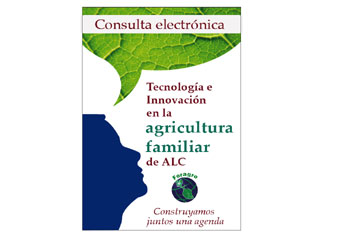The findings will be presented at the Second Global Conference on Agricultural Research for Development, to be held in October.

San Jose, Costa Rica, April 2, 2012 (IICA). Individuals and organizations in the Americas interested in matters related to family agriculture, research, extension and innovation may contribute to the discussions of the Conference via an electronic consultation, aimed at developing an agenda for family agriculture and innovation for Latin America and the Caribbean (LAC).
Those wishing to participate in the consultation must register at an on-line platform.
The consultation is being organized by the Forum for the Americas on Agricultural Research and Technology Development (FORAGRO), and its results will be used to support the position of the countries of LAC at the Second Global Conference on Agricultural Research for Development (GCARD2), to be held in Uruguay in October.
This year, the discussions of the GCARD2 will focus on foresight, alliances and capacities for innovation in family agriculture as a means of reducing poverty and improving food security and the sustainable management of natural resources.
FORAGRO wishes to take advantage of the Conference to present an agenda for work in the area family agriculture and innovation in LAC, including a prospective analysis looking ahead to 2030.
The agenda itself will be drawn up during the Sixth Meeting of FORAGRO, scheduled for August 21-23 in Lima, Peru, based on the inputs received from the electronic consultation. The theme “More and stronger alliances for innovation in family agriculture in Latin America and the Caribbean” has been chosen for the meeting.
For more information, contact:
arturo.barrera@iica.int











